"Years are similar to each other. Years are different each year." Farewell to 2017, the excitement of the past still vividly shows: the automotive industry is flourishing, is welcoming unprecedented agitation and change; car production and sales record high and will be the first in the world for nine consecutive years; with smart, interconnected and New energy is the key word. The traditional car companies are catching up. The “new forces for building cars†are flocking to you. You sing me to the stage; new demands for environment, transportation, and social harmony, while promoting harsh industrial policies, New issues and new challenges were raised for car owners.
The most highly anticipated 2017 car market performance in China is far behind expectation
In early 2017, the China Association of Automobile Manufacturers announced that in 2016, China’s auto production and sales exceeded 28 million vehicles, and for the eighth consecutive year, it had forecasted that the growth rate of China’s auto market could reach 5% in 2017.
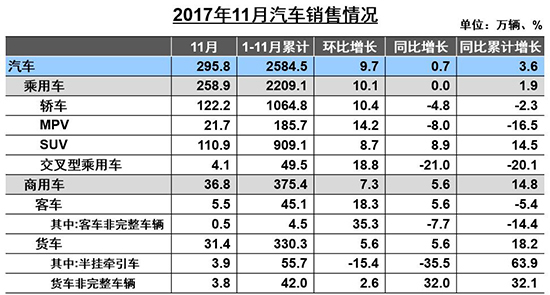
What about actual performance in 2017? If the January and February downturns are affected by the Spring Festival holiday, then they are "cautiously optimistic," "not yet improved," "severe," "slowed," "far below expectations," and "well below In the same period, the words “frequently appearedâ€, and the weakness of the Chinese auto market in 2017 was finally exposed.
At the recent data announcement meeting, China Automobile Association stated that from January to November of 2017, China's automobile sales were 25.845 million vehicles, a year-on-year increase of only 3.6%, and the 5% growth target set at the beginning of the year was difficult to accomplish.
The lower-than-expected performance of the Chinese auto market in 2017 was unexpected and reasonable. It is built on the rapid growth of the Chinese auto market for many years, and in particular, the sales growth of the Chinese auto market in 2016 was as high as 13.7% year-on-year, making people have a lot of confidence in the auto market. However, with the 1.6L small-displacement auto purchase tax preferential policy, the slowdown in the growth of the hot SUV market in recent years, the continued sluggish car and MPV market, and the high base and high factors in the same period last year, after the first quarter of 2017, The accumulative sales growth of China’s auto market has never exceeded 5%.
Although the growth rate of the auto market is not expected to reach expectations, the Chinese auto market won no suspense for the ninth year in a row and it is believed that in the coming long period of time, China’s auto sales market will not be challenged to dominate the global market. .
The combination of the most "Lei Ren" "double scores" gave birth to Ford Zhongtai "marriage"
One is an international car giant with more than 100 years of history. One is a car company that is often in the forefront and ridiculed as the “measurer department.†The two companies seemingly have nothing to do with each other, but unexpectedly arrived in 2017. together.
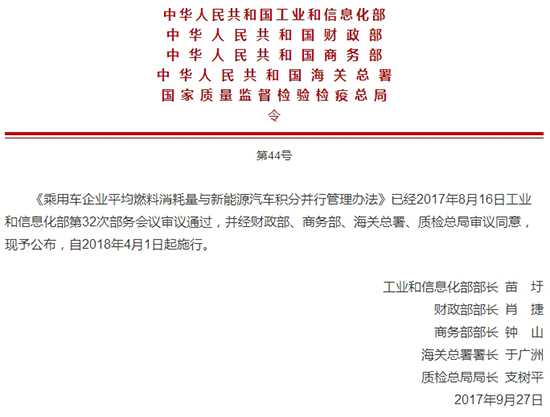
On August 21, 2017, Zotye and Ford signed the "Memorandum of Understanding on the cooperation of pure electric passenger vehicle business" in Hangzhou and intends to establish a joint venture company in China to develop, manufacture, sell and service pure electric passenger vehicles. Both parties will each hold 50% of the shares. Since then, the cooperation has also been advancing rapidly. On November 8, the two parties formally signed a joint venture contract; on December 7, the two sides signed the "Jinhua Full-vehicle Plant Project Investment Agreement between Ford and Zhongtai Pure Electric Passenger Vehicles." The two sides will invest 5 billion yuan to build a pure electric passenger car plant in Zhejiang Jinhua......
The "marriage" of Ford Zhongtai seems to be unexpected, but it is actually caused by deeper reasons. On September 28, 2017, the Ministry of Industry and Information Technology, the Ministry of Finance, the Ministry of Commerce, the General Administration of Customs, and the General Administration of Quality Supervision, Inspection and Quarantine jointly announced the "Measures for the Concurrent Management of the Average Fuel Consumption of Passenger Vehicles and New Energy Vehicles." The eye-catching "dual-integration" policy officially landed.
The double-integration policy will be a policy that has a huge boost effect on the development of China's electric vehicles. However, the rapid pace of its launch has also made many new-energy vehicle companies unable to meet the standards to be caught off guard. In order to effectively respond to the “dual-integration†policy, many international car giants that are quite weak in the new energy sector have to put aside their positions and are eager to seek cooperation with domestic car companies that have a basis for the production and sales of new energy vehicles in order to complete the fastest possible way. Production and sales quota requirements. This gave birth to a hurrying and slightly unsuited combination such as Ford Zhongtai. In addition, Volkswagen, JAC, Great Wall, Yu Jie, Dongfeng and Renault-Nissan also announced joint ventures for new energy vehicles.
In the new mode of joint venture wave, the next born new energy car portfolio will be who?
The most insecure "airbag" Takada recalls continued outbreak
Focus on the product itself. Among them, security is undoubtedly the most important criterion for measuring vehicle reliability. However, the airbags that should provide protection for consumers will actually explode without warning and become a murder weapon! The tens of millions of cars around the world were recalled, and there are countless hidden vehicles waiting to be recalled. They are always threatening the safety of drivers and passengers.
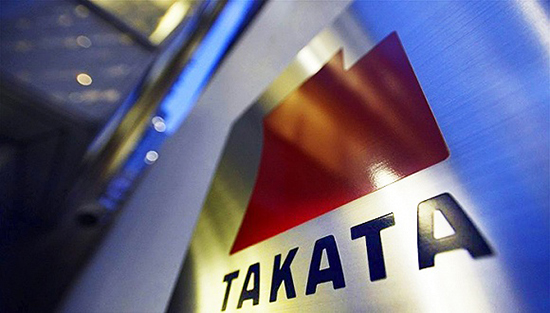
The founder, Japan Takada, finally resisted the pressure to formally file for bankruptcy protection on June 26, 2017 in the United States. However, this scandal of the world’s most influential vehicle safety quality scandal is far from showing the end of trend. .
Especially in 2017, the outbreak of the Takadan airbag incident in China was even more striking. In 2017, a total of 20,202,369 domestic passenger vehicles were recalled, a substantial increase of 78.28% year-on-year. The Takada airbags were the “culprit†for the number of recalls. In 2017, the number of vehicles recalled due to the installation of Takata’s airbags reached 9,758,575 vehicles, which accounted for 48.30% of the total number of recalls.
Among them, Japanese brands such as Toyota, Honda, and Subaru, which were heavily affected by Takada Airbags in 2016, continued to issue too many recalls caused by Takada’s balloon in 2017; in addition, Lexus, Jaguar Land Rover, Porsche, Infiniti, and Lincoln , Acura, Volvo, Mercedes-Benz, BMW, Audi and many other high-end car brands have also entered the "Taotian Airbag Recall List."
The wide scope and long duration of the Gaotian incident have even attracted the attention of government departments. In early July, the General Administration of Quality Supervision, Inspection and Quarantine, the Department of Law Enforcement, discussed the public about the breakdown of the Takada balloon generator. General Motors, Mercedes-Benz company, and reported the investigation of defects, require relevant companies to take corresponding measures as soon as possible to fulfill the legal obligations of defect recalls, and effectively eliminate potential safety hazards.
This also led to the "surge of surging" of domestic passenger cars recalled in September and October this year. In September, Volkswagen announced that it had recalled 4,860,029 vehicles because of the assembly of Takata Airbags. This has also become the largest number of single recalls in the domestic recall market. On the following day, GM announced the recall of 2,515,841 cars for the same reason. In October, Mercedes-Benz also announced that Announcing the recall of 351,218 cars...
Regarding this, people cannot help but ask: How long will Takada be entangled with us?
The most "stingy sign" quality "ingeniously made" met with "fake scandal"
The haze of Takada's "snapping airbags" is still there, and another Japanese parts supplier is in a hurry to "take over" and come to the "signboard" of the Japanese company. This makes the Japanese auto industry and even the entire Japanese manufacturing industry precarious.
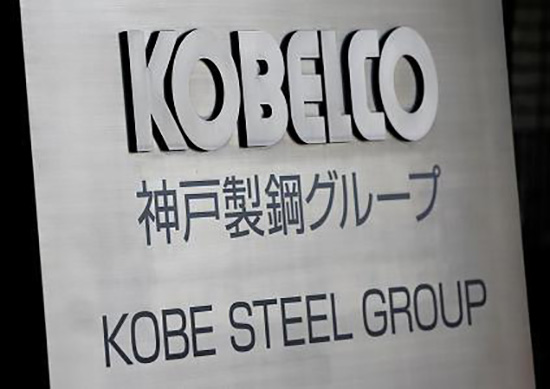
On October 8, 2017, the third largest steel company in Japan, the Kobe Steel Institute, held a press conference to acknowledge the importance of altering the strength and size of some copper and aluminum products, and supplying the product to customers in shoddy fashion; thereafter, Japan's Kobe Steel Institute has been exposed to iron powder product parameter fraud... Because it is in the upper reaches of the supply chain and companies have been falsifying even for as long as 10 years, the scope and degree of influence are difficult to assess. Nearly 500 companies have been affected by the “impact†in the fields of railways, aerospace, nuclear facilities, and even defense...
The Japanese automobile manufacturing industry is even more collectively framed. The problem products produced by the Kobe Steel Plant cover all Japanese car companies such as Toyota, Nissan, Honda, Mitsubishi, Subaru, Mazda, and Suzuki. What is even more striking is that the executives of the Kobe Steel Institute are aware of the fraud. In a media interview, Mei Yuanshang, deputy director of the Kobe Steel Institute, bluntly stated that “the change of data is not something individual does, but it is the acquiescence of the company that it is acquiesced by the managementâ€.
However, the Japanese automobile manufacturing scandal is far more than that. On October 19th, 2017, Nissan Motor Co., Ltd. disclosed that the Nissan Motor Co., Ltd. had admitted to using a large number of unqualified personnel to perfunctory factory inspection procedures during the inspection of finished vehicles; and according to NHK, the violation has been at least continued. 20 years old. Coincidentally, on the same month of the same month, another Japanese car company Subaru also admitted that its assembly factory in Gunma Prefecture in Japan had unlicensed personnel involved in the final inspection of the vehicle's final quality, and this illegal operation involving vehicle safety was It has lasted up to 30 years.
Japan's manufacturing industry, which has always been a "craftsman's spirit," has "flawed and swindled" for decades in various fraud scandals... In the face of such ridiculous events, Japanese car companies have almost unanimously announced that they do not affect the Chinese market. The argument is even more puzzling.
Faced with successive scandals, one after another incident, one after another meticulous concoction scam, and Japanese companies indifference to the Chinese market ... consumers will look for "Made in Japan" this "golden signboard" it? In this regard, the Economic Daily - China Economic Net Automotive Channel will continue to pay attention and report in the new year.
The most "reversed" Audi wins the thrill of high-end competition
In addition, the competition in Audi, Mercedes-Benz and BMW in the high-end car market is almost white-hot, which is also a major attraction of the Chinese auto market in 2017. The answer was finally settled with the announcement of FAW-VW Audi.
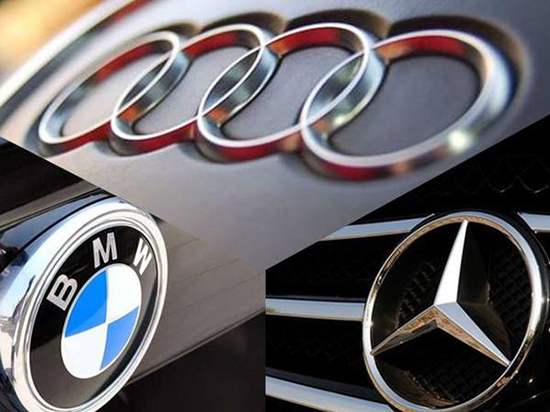
On January 5, 2018, FAW-Volkswagen Audi announced the latest sales data: FAW-Volkswagen Audi delivered a total of 595,288 vehicles in the year of 2017, an increase of 1.05% over the same period of last year, and won the annual sales championship of China's premium car market for 30 consecutive times.
Although in terms of previous sales, Audi announced the championship, it should be based on the competitor Mercedes-Benz does not include smart, BMW does not count in mini sales, but Audi's ill-fated Audi in 2017 can achieve such a result, it is still amazing Strong appeal in the Chinese market.
While waiting for the other two car companies to publish the final data, we may wish to review ABB’s consecutive catch-ups and catch-ups in 2017.
In January, Mercedes-Benz took the first place in the domestic single-month sales championship. In February, it was BMW's turn to be the top spot. This is also BMW's first sales in China for the first month... In the first half of 2017, China's premium car market was in Mercedes-Benz. Both of you and BMW competed for one another and started a new rhythm. The former overlord Audi was trapped in a farewell of "rejoint ventures" and was almost forgotten.
Just when people were almost deterred by the attitude of Audi falling behind, entering the second half of the year, the competition in the high-end car market went white with the return of the King of Audi. In the first half of the second half of the year, Audi scored a single month’s worth of sales in one fell swoop, officially launching the “recovery battle.†Since then, Audi has won two consecutive championships and has won three consecutive titles.... In December 2017, Audi set a new record for 68,894 single-month sales. At this point, Audi, which has won seven consecutive months of sales, has finally managed to maintain its own risk. The leader in the premium car market in China.
Although Audi broke out after the second half of the final crown, but the whole process is thrilling. In the first half of 2017, Audi was still at a disadvantage in the competition for the top-selling car market in China.
In the first 11 months of 2017, Mercedes-Benz achieved a historic breakthrough—the first time in the Chinese market to exceed 500,000 vehicles and reached 560,154; BMW also completed sales over the previous year in one month in advance, which is wonderful; and in the premium car market in China. Far ahead of Audi for 29 years, he can only play the role of chase.
At this point, in the showdown of the whole year in 2017, the annual sales volume of the three ABB Chinese markets reached an all-time high of 600,000 vehicles, which also created a new history of China's premium car market.
Wheel Sorter,Warehouse Sorter,Optical Sorter,Auto Sorter
CHANGZHOU GUTE APPLIANCES EQUIPMENT CO.,LTD , https://www.guteappliances.com